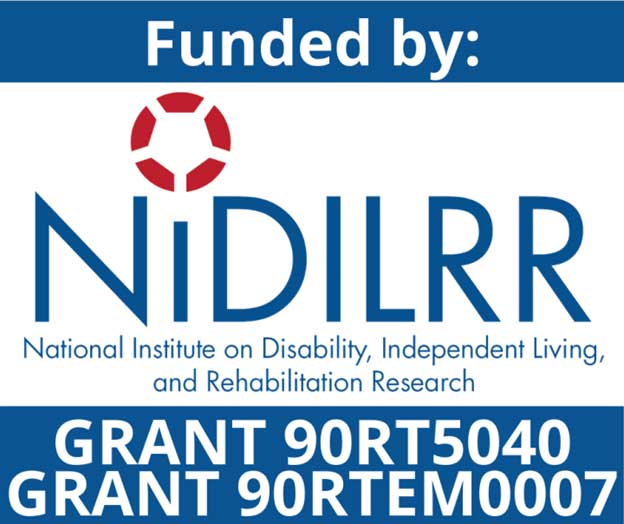Have you ever wondered what employers think about hiring blind workers? Our research sheds light on employers’ knowledge and attitudes.
Have you ever wondered what employers know about how blind people do job tasks? Or what employers think about hiring a blind person?
Negative employer attitudes are the most common barrier to employment mentioned by people who are blind. What can be done to address these negative attitudes? To help answer this question, we wanted to learn more about employers’ attitudes. What do they think and know about blind people in the workplace?
Almost 1,000 employers – people in hiring positions at businesses of different sizes – in four states took part in our studies. We asked the employers questions to measure their attitudes about blind people as employees and their knowledge about how blind people do five common job tasks. This is what we found:
Employer Knowledge
- Most employers do not know much about how blind people do common job tasks, like accessing a print document or using a computer. This means they need you to tell them how you can do these types of tasks!
- More employers thought they knew how tasks could be done than actually did. This means some employers have wrong information, another reminder that it is important to tell employers how you do workplace tasks.
- Employers who actually knew how blind people do job tasks tended to have more positive attitudes towards hiring. Knowledge of how blind people do work tasks may contribute to more openness toward hiring blind workers!
Employer Attitudes
- Employers had a wide range of attitudes about hiring blind workers, from very negative to very positive. On average, their attitudes fell at about the midpoint of the attitude scale.
- Employers who said they had communicated with the VR agency that serves blind people in their state tended to have more positive attitudes.
- Employers who knew more about how blind people do work tasks also tended to have better attitudes.
What does all this mean to you?
Most employers don’t know how you could function on the job. If they don’t understand that, how could they hire you? A few things to keep in mind:
- Teaching employers how blind people do job tasks is important. This is something you can do! Your VR agency staff can also give helpful information and insight.
- It is a good idea to work with your local VR agency to set up job interviews. We found that employers who had communicated with VR staff tended to have better attitudes about hiring blind workers.
- Before an interview, be sure you know the essential functions for the job to which you are applying. These should be listed in the job description.
- In a job interview, speak up about how you can do job tasks! Just because the employer doesn’t ask, this doesn’t mean they don’t have questions. In fact, they might be hesitant to ask, so it’s up to you to provide this information. Better to make it clear in the interview that you can do the needed job tasks than to leave them wondering.
- It may be useful to bring some of your assistive technology with you to an interview so you can show how you would use it at work. Remember, an interview allows you to make sure the employer knows you can do the job. The more capable you seem, the more likely you are to get the job.
- Take the employer’s perspective – it is important for them to hire someone who can successfully do the job (in addition to having “soft skills,” like a strong work ethic and good social skills). If you don’t make it clear that you can do the needed job functions, can you really expect them to hire you?
Findings taken from the following article:
McDonnall, M. C., O'Mally, J., & Crudden, A. (2014). Employer knowledge of and attitudes toward individuals who are blind or visually impaired as employees. Journal of Visual Impairment & Blindness, 108(3), 213-225.
